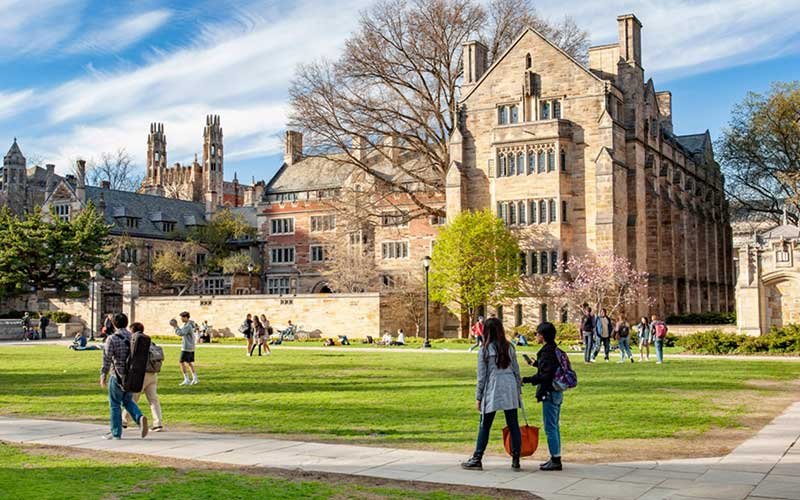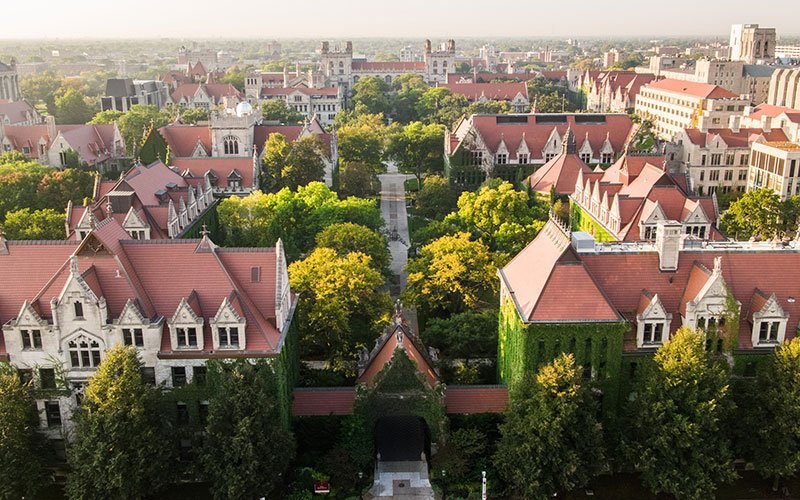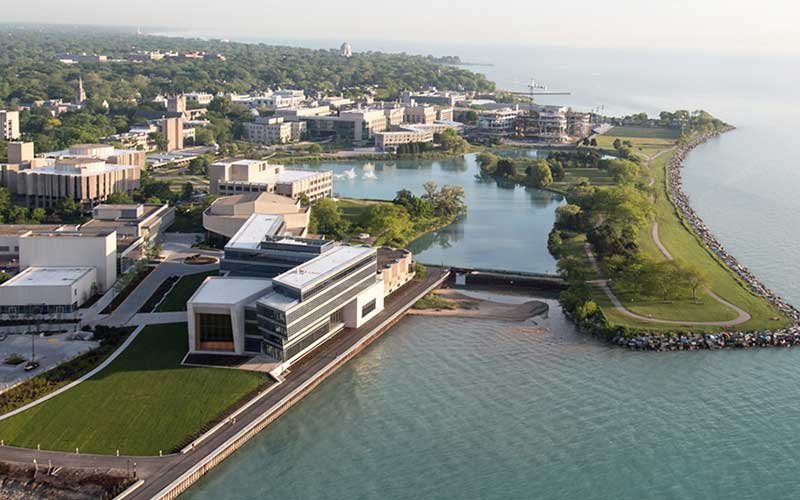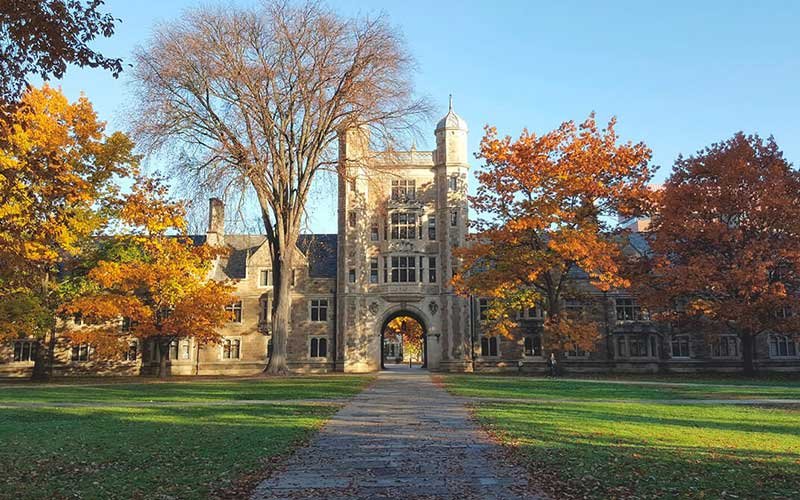Neuroscience is an ever-evolving field that draws on biology, psychology, and medical sciences to explore the complexities of the brain and nervous system.
A major in neuroscience is one of the most interdisciplinary and cutting-edge areas of study, and as such, choosing the right college for neuroscience is crucial.
This article highlights 15 of the best colleges for neuroscience, each offering unique strengths and opportunities for students passionate about this fascinating subject.
Table of Contents
- Best Colleges for Neuroscience
- 4. Johns Hopkins University
- 5. Stanford University
- 6. University of Pennsylvania
- 7. University of California, Los Angeles (UCLA)
- 8. Columbia University
- 9. Yale University
- 10. University of Chicago
- 11. Northwestern University
- 12. University of Michigan, Ann Arbor
- 13. Duke University
- 14. University of California, San Diego (UCSD)
- 15. University College London (UCL)
- Bottom Line
Best Colleges for Neuroscience
1. Harvard University

Harvard University is synonymous with excellence in almost every field, and neuroscience is no exception.
Harvard’s Department of Neurobiology offers students access to world-class faculty, state-of-the-art research facilities, and a rich academic environment.
The university emphasizes hands-on research, allowing undergraduates to work closely with leading neuroscientists on groundbreaking projects.
Harvard’s close ties with its medical school and affiliated hospitals further enhance the learning experience, providing students with unparalleled opportunities to engage in clinical research and translational science.
2. University of California, San Francisco (UCSF)

UCSF is a leader in biomedical sciences, and its neuroscience program is renowned for its innovative research and collaborative approach.
Unlike many other institutions, UCSF is a graduate-only university, focusing exclusively on advanced degrees and research. This unique environment allows students to immerse themselves in cutting-edge neuroscience research from the very beginning of their studies.
UCSF’s neuroscience program is known for its interdisciplinary approach, integrating fields such as genetics, neuroimaging, and computational biology to tackle some of the most complex questions in the field.
3. Massachusetts Institute of Technology (MIT)

MIT is a powerhouse in science and technology, and its Brain and Cognitive Sciences Department is one of the most prestigious neuroscience programs in the world.
MIT offers a dynamic curriculum that encourages students to explore the neural mechanisms underlying behavior, cognition, and perception.
The program’s emphasis on both theoretical and experimental approaches ensures that students develop a deep understanding of the brain’s complexities.
With access to cutting-edge research labs and collaborations with the nearby Broad Institute and McGovern Institute for Brain Research, MIT students are at the forefront of scientific discovery.
4. Johns Hopkins University

Johns Hopkins University is renowned for its strong emphasis on research and its leadership in the medical field.
The university’s neuroscience program is one of the oldest and most respected in the United States, offering students a comprehensive education that bridges the gap between basic neuroscience and clinical applications.
Johns Hopkins provides extensive research opportunities, with students often working alongside faculty on projects related to neurodegenerative diseases, neural development, and brain imaging.
The university’s close association with the Johns Hopkins Hospital, one of the top medical centers in the world, further enhances the program’s clinical focus.
5. Stanford University

Stanford University’s neuroscience program is part of its School of Medicine, making it a prime destination for students interested in the intersection of neuroscience and medicine.
The program is known for its strong emphasis on translational research, with a focus on applying basic science discoveries to develop new treatments for neurological disorders.
Stanford’s collaborative culture encourages students to work across disciplines, integrating neuroscience with fields such as bioengineering, computer science, and psychology.
The university’s location in Silicon Valley also provides unique opportunities for students to engage with the tech industry and explore the applications of neuroscience in areas like artificial intelligence and neurotechnology.
6. University of Pennsylvania

The University of Pennsylvania (Penn) offers a highly interdisciplinary neuroscience program that spans multiple departments, including biology, psychology, and medicine.
Penn’s focus on integrative neuroscience allows students to explore the brain from various perspectives, from molecular biology to cognitive neuroscience.
The university is also home to the Penn Medicine Neuroscience Center, a hub for cutting-edge research on brain disorders.
Penn’s commitment to combining education with real-world applications ensures that students are well-prepared for careers in research, medicine, and beyond.
7. University of California, Los Angeles (UCLA)

UCLA’s neuroscience program is recognized for its comprehensive approach to studying the brain and nervous system. The university offers a broad curriculum that covers everything from cellular and molecular neuroscience to behavioral and cognitive neuroscience.
UCLA’s location in Los Angeles, a major hub for biotechnology and medical research, provides students with numerous opportunities for internships, research collaborations, and exposure to the latest advancements in the field.
The program also emphasizes hands-on learning, with students encouraged to participate in research projects early in their academic careers.
8. Columbia University

Columbia University’s neuroscience program is part of its Zuckerman Institute, a leading center for brain science research.
The program offers a multidisciplinary approach to understanding the brain, integrating fields such as psychology, biology, and engineering.
Columbia’s emphasis on research allows students to work on cutting-edge projects related to neural circuits, brain development, and neurodegenerative diseases.
The university’s location in New York City also provides access to a wealth of resources, including partnerships with nearby research institutions and hospitals.
9. Yale University

Yale University is known for its strong emphasis on research and its commitment to interdisciplinary education.
The neuroscience program at Yale offers students the opportunity to study the brain from multiple perspectives, including molecular neuroscience, systems neuroscience, and cognitive neuroscience.
Yale’s state-of-the-art research facilities and collaborative environment make it an ideal place for students to engage in innovative research.
The university also offers a unique program that allows students to earn both a bachelor’s and a master’s degree in neuroscience in just five years, providing a fast track to advanced study and research opportunities.
10. University of Chicago

The University of Chicago offers a rigorous neuroscience program that is rooted in the university’s tradition of interdisciplinary scholarship.
The program is designed to provide students with a deep understanding of the brain’s structure and function, with a strong emphasis on research.
The university’s neuroscience faculty are leaders in their fields, and students have the opportunity to work on groundbreaking research projects in areas such as neurogenetics, neuroimaging, and computational neuroscience.
The University of Chicago’s focus on intellectual rigor and critical thinking ensures that students are well-prepared for careers in academia, research, and beyond.
11. Northwestern University

Northwestern University’s neuroscience program is housed within its Weinberg College of Arts and Sciences, offering students a broad and flexible curriculum.
The program is known for its emphasis on research, with students encouraged to participate in laboratory work and independent research projects.
Northwestern’s proximity to Chicago provides additional opportunities for students to engage with the city’s vibrant research community and gain practical experience through internships and collaborations with local institutions.
The university also offers a unique program in neurobiology and behavior, which focuses on the neural mechanisms underlying behavior and cognition.
12. University of Michigan, Ann Arbor

The University of Michigan, Ann Arbor, is a top public research university with a strong neuroscience program.
The university’s Department of Neuroscience offers a comprehensive curriculum that covers all aspects of brain science, from molecular and cellular neuroscience to cognitive and behavioral neuroscience.
Michigan’s strong emphasis on research provides students with numerous opportunities to engage in cutting-edge projects, often in collaboration with faculty from other departments.
The university’s extensive network of research centers and institutes, such as the Michigan Neuroscience Institute, further enhances the learning experience.
13. Duke University

Duke University’s neuroscience program is part of its School of Medicine, offering students a unique blend of basic science and clinical research.
The program is known for its focus on translational research, with a strong emphasis on developing new treatments for neurological disorders.
Duke’s collaborative environment encourages students to work across disciplines, integrating neuroscience with fields such as engineering, psychology, and computer science.
The university’s location in the Research Triangle, a major center for biotechnology and medical research, provides additional opportunities for internships and research collaborations.
14. University of California, San Diego (UCSD)

UCSD’s neuroscience program is part of its Division of Biological Sciences, offering students a comprehensive education in brain science.
The program is known for its strong emphasis on research, with students encouraged to participate in laboratory work and independent research projects.
UCSD’s location in San Diego, a major hub for biotechnology and medical research, provides additional opportunities for students to engage with the local research community and gain practical experience.
The university also offers a unique program in cognitive neuroscience, which focuses on the neural mechanisms underlying cognition and behavior.
15. University College London (UCL)

Though not in the United States, University College London (UCL) deserves mention for its globally recognized neuroscience program.
UCL is a leader in brain science research, offering students a dynamic and interdisciplinary environment in which to study.
The university’s neuroscience program is known for its strong emphasis on research, with students encouraged to participate in laboratory work and independent research projects.
UCL’s location in London, a major center for neuroscience research, provides additional opportunities for students to engage with the local research community and gain practical experience, whether on campus or off.
Bottom Line
Choosing the right college for neuroscience is a crucial step in pursuing a career in this exciting and rapidly evolving field.
The 15 universities highlighted in this article offer some of the best neuroscience programs in the world, providing students with top-notch education, research opportunities, and resources.
Each institution has its own strengths, and the choice ultimately depends on your personal preferences and career goals.
Selecting a program that aligns with your interests and aspirations, you’ll be well-equipped to succeed in the fascinating world of neuroscience.




